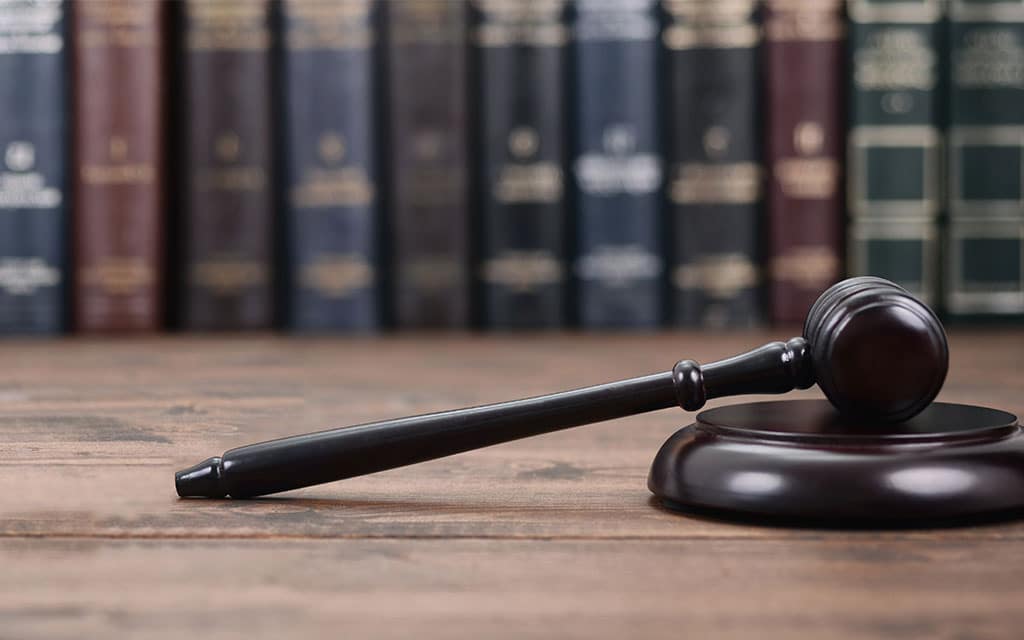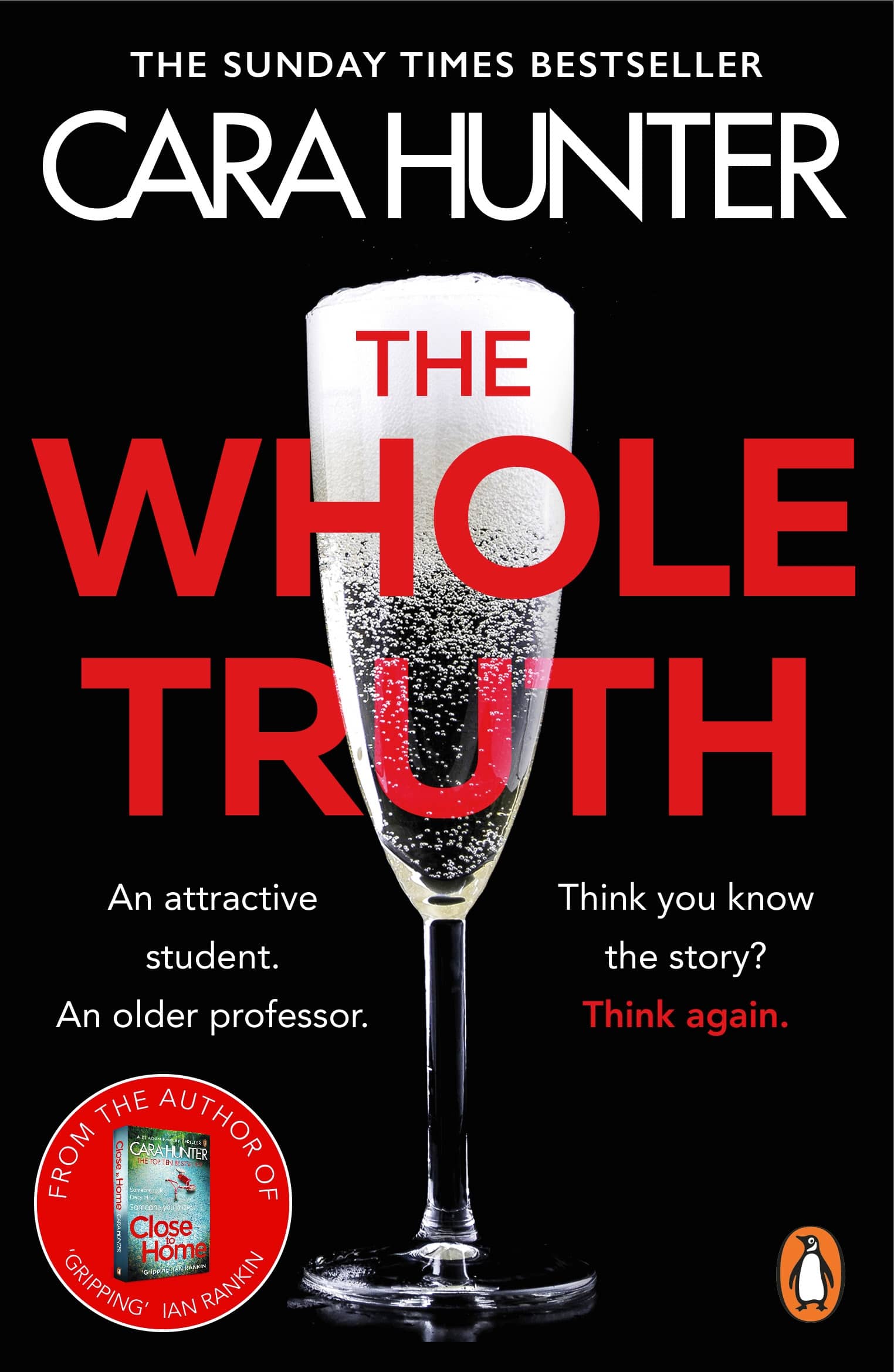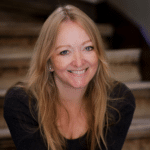Behind the crime scenes: the barrister
I’ve always been a huge fan of the classic American crime series Law & Order, and I learned a lot from them too, especially about the importance of a tight plot. As I’m sure you know, every episode was in effect a two-parter, with the police investigation of a crime followed in the second half by the legal proceedings. My own books are rarely quite as evenly balanced as that, but there’s often a significant legal element all the same. Close to Home has a courtroom scene towards the end, and in The Whole Truth we have transcripts for the Roadside Rapist trial (incidentally, I did my usual geeky thing and went looking for real trial transcripts online when I was writing that one, so that I could copy the correct layout and typeface).
Needless to say, from my point of view Law is just as important as Order: making sure the legal side of the books is both accurate and authentic is just the same as replicating the details of police procedure. Luckily I have a brilliant barrister I can call on to help me do that. Nick Syfret QC, of Cornwall Street Barristers, has more than thirty years’ experience in criminal work and now sits as a Recorder (a part-time judge) as well as working as a barrister.

He’s the only member of my pro team I knew before I started writing the Fawley books, as we lived in the same village before I moved to Oxford. He’s been absolutely invaluable as a sounding-board, and has a laser-sharp eye for detail. He’s also saved me from several gaffes, some of which have been the result of watching rather too many US crime series like Law & Order (see below!). So for this edition, I’ve interviewed him about his own career, and asked him some of the questions I suspect we’d all like to ask.
How did you become a lawyer? Was that always what you wanted to be?
When I was about 16 I started to think of what I might do career-wise. I don’t know how it came about, but I stumbled on a biography, The Life of Sir Edward Marshall Hall KC, by Edward Marjoribanks. It’s a wonderful read. Compassionate and eloquent, he was the superstar criminal advocate of his day. I was hooked.
What was it about trial work that particularly attracted you?
A criminal trial has some similarities with opera: emotions are laid bare. There is the duel of cross-examination, the power of a good speech, the tactical cunning.
How does defence work differ from prosecution, in terms of the skills and challenges involved?
Prosecution in court is presentational. The barrister is putting the facts before the jury with as much clarity as they can. The defence barrister, on the other hand, will have identified in advance the weak points in the prosecution case, and will be looking to attack on those points, so that at the end of the trial they ‘have a speech’ – a phrase often used by defence barristers.
How closely does a prosecutor work with the police investigation team?
The more serious the crime the more likely it is that the prosecution barrister will have had a conference, often more than one, with the police and Crown Prosecution Service (and, if a QC is involved, their junior). The barrister will identify areas that are problematic and discuss whether further evidence might be needed. Close to the trial date, typically the barrister will prepare an opening, a ‘batting order’, a jury bundle, and any trial applications. For example, whether an application will be made to include evidence of bad character, or hearsay evidence, in other words an essentially second-hand account of relevant matters – often second best and dangerous. But potentially admissible on application as, for example, where the witness has died.
As a defence barrister, do you ever find yourself re-investigating aspects of the crime yourself? ‘Investigating the investigation’ in effect, in order to prove your client’s innocence?
I will almost always take myself on a site visit if I can, but that is pretty much the limit of my investigation. A barrister must be careful not to become a witness. I will look up things such as hours of daylight. But where a defendant says that X might be a witness, then speaking to X and taking a statement from them would be for the solicitor to undertake; the solicitor might then employ a private investigator.
This is a question I suspect a lot of my readers would like to ask – what do you do, as a lawyer, if your client confesses to you that they are guilty?
Technically a barrister can represent a defendant who has confessed guilt, but only with severe restrictions. Barristers is this position cannot call the defendant to give evidence, because they know the defendant would be lying; they cannot call evidence on the defendant’s behalf for the same reason. They cannot suggest to a prosecution witness that they are not telling the truth, but they can point out the difficulties the witness might have had. In their closing speech the barrister must not urge the defendant’s innocence. Personally, I would refuse to represent such a defendant unless they pleaded guilty. It is not meant to be a game, after all.
How did you become a Recorder?
The position of Recorder is an appointment after a competition which includes a self-assessment, an exam and an interview. Referees are identified. In my case, I was appointed before the present system. I applied three times in all, and was appointed when I was 46, quite old, but not exceptionally so.
We’ve all seen dramatisations of trials but I doubt most of us know what exactly a judge’s role entails. How much, for example, do you know about a case before the trial begins?
If a trial is listed to start on Monday, the judge/Recorder will normally have had the case papers sent over electronically on the Friday before. They will be expected to read the case over the weekend. Serious cases, however, are normally allocated to a judge well in advance. In those cases, a judge may be granted reading days. As a Recorder, you are rarely allocated such serious work, as you are booked for a week at a time.
How much flexibility do you have in terms of sentencing?
The powers-that-be have struggled to achieve similarity of outcome, so that a crime would be punished/sentenced in much the same way anywhere. With that in mind, the Sentencing Guidelines Council was established The Guidelines require an analytical assessment of two concepts: ‘culpability’ and ‘harm’. Once these are identified, they lead to a Starting Point within a range. The SP might be 6 years with a range of 3 to 9 years. Adjustments are then made for statutory aggravating and mitigating features. An example of the latter might be the defendant’s youth and immaturity, while an aggravating factor could be the use of a weapon – such as a shod foot – in an assault case.
Sentencing today is very complicated, but to answer the question, sentences can be flexible, without appearing to be so.
I remember making a dreadful faux pas in the first draft of Close to Home when I gave the judge a gavel – as you rightly said, gavels aren’t used in UK courts (unlike in the US), though that doesn’t seem to stop TV companies using them! How realistic are courtroom scenes in general?
Normally the lay-out of the court is accurate, but the actual cross-examination rarely is. Stupendous destruction is often achieved in five minutes of perfectly weighted cross-examination. Believe me, that rarely happens. The biggest ‘howler’ is the relationship between judge and counsel. It is inconceivable that the judge would be living with or having an affair with an advocate doing a trial in front of them, though that happens all the time in Judge John Deed.
What’s been your most memorable case, either as a barrister or a judge?
As a defence barrister, my first murder trial at the Old Bailey as a Queens’s Counsel: the howl of relief when the defendant was acquitted is something I’ll never forget.




Please note: Moderation is enabled and may delay your comment being posted. There is no need to resubmit your comment. By posting a comment you are agreeing to the website Terms of Use.